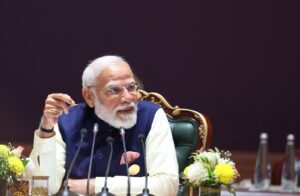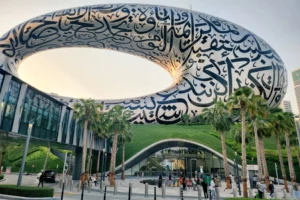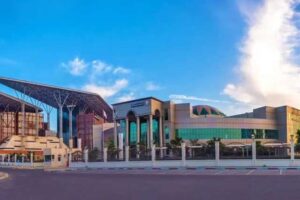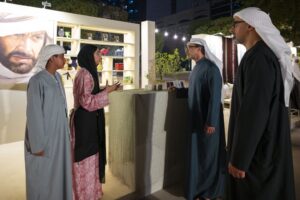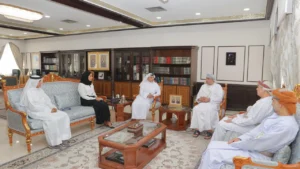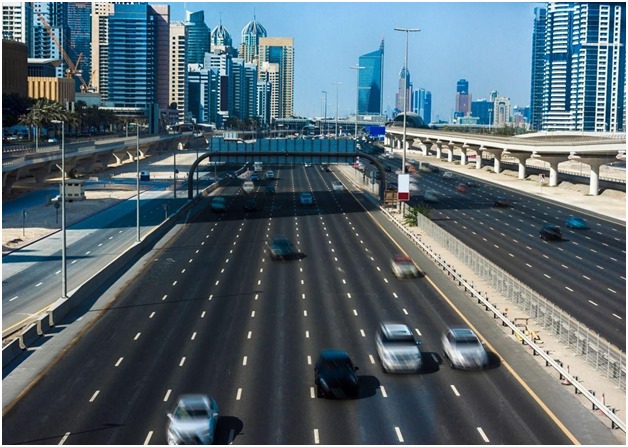
Dubai’s streets are notorious for their traffic jams, especially during school drop-offs and the morning rush to work, often becoming unbearable. Every day, thousands of parents and employees sit in gridlock, costing the city billions of dirhams in lost productivity and infrastructure wear. Compounding the issue, prime real estate is being wasted on parking spaces and expensive garage basements and podiums, which could instead be utilized for more valuable developments.
A simple, effective solution is right in front of us: mandatory school buses and employee shuttles. By making this shift, the government can drastically reduce traffic, reclaim valuable land, and improve the economy. However, for this initiative to succeed, it must be mandated and subsidized by the government.
Too Drastic? Other Cities Have Done It
If this proposal seems extreme, take a look at what other cities have accomplished:

- London’s Congestion Pricing: Initially controversial, congestion pricing now reduces traffic by 30%, making driving in central London smoother while generating funds for public transport.

- Car-Free Zones in Madrid and Copenhagen: Cities like Madrid have made parts of their city centers car-free, creating cleaner, pedestrian-friendly spaces that boost local business and tourism.

- Bike-Sharing in Paris: Once seen as a fringe idea, bike-sharing is now part of the city’s DNA, reducing traffic and promoting a healthier, more sustainable lifestyle.
These ideas were once viewed as radical but have since proven to transform urban living. Dubai has the chance to lead with its own bold step: mandatory buses.
The Case for Mandatory Buses
Dubai has over 300,000 students across 200+ schools, most of whom are driven by their parents, adding to traffic congestion and wasting school land on parking. Similarly, large companies with thousands of employees require vast parking spaces, consuming valuable real estate.
Mandatory buses for both schools and companies could change all that. Fewer cars on the road mean less traffic, less need for parking, and faster commutes. With bus-only lanes and strategically planned pick-up and drop-off points, buses could move faster than private cars during rush hour.
Social and Environmental Benefits
Buses aren’t just practical; they also promote social interaction. Students would mix with peers from other grades, building friendships, while employees could bond with colleagues from different departments. In this “social container,” casual interactions could foster stronger communities and better teamwork.
The environmental benefits are significant too. Fewer cars on the road mean lower emissions, helping Dubai move closer to its sustainability goals. Electric buses would further reduce the city’s carbon footprint.
Government Subsidization and Reclaiming Real Estate
The government must subsidize these buses to ensure their success. Fewer cars on the road mean less wear and tear on Dubai’s infrastructure, saving billions in road maintenance costs. Reduced traffic also boosts productivity—workers arrive on time, and businesses operate more efficiently. The long-term benefits will far outweigh the initial cost of subsidies.
Parking lots currently occupy some of the most expensive real estate in Dubai. By reducing the need for parking, schools and companies could repurpose these spaces for classrooms, parks, or office spaces, improving the urban landscape and boosting the economy.
Dubai’s traffic problem isn’t just an inconvenience—it’s a drain on productivity, a waste of real estate, and a burden on the environment. By implementing mandatory, subsidized school buses and employee shuttles, the government can drastically improve traffic flow, reclaim valuable land, and boost the city’s economy. As Dubai aims to become a “20-minute city” under Vision 2040, this proposal is perfectly aligned with that goal.
It’s time to act—let’s hop on the bus.
About the Author
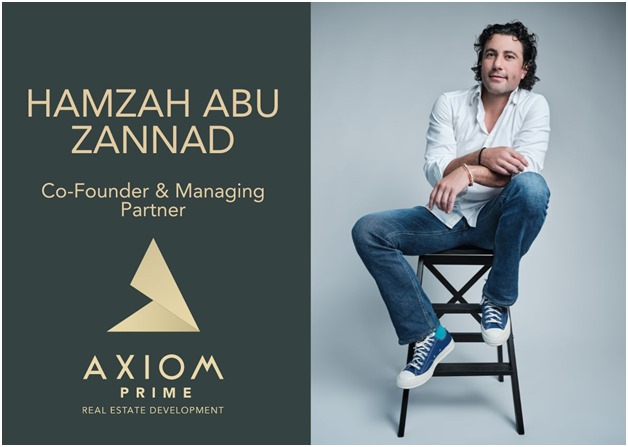
Hamzah Abu Zannad is an industry veteran and the co-founder and managing director of Axiom Prime Real Estate Development. With over two decades of experience in the dynamic Dubai real estate market, Hamzah has played a pivotal role in introducing forward-thinking and sustainable living solutions to the region. Axiom Prime Real Estate Development, renowned for its Dutch-inspired, luxurious developments, focuses on community-driven designs and cutting-edge technology. Their flagship projects in Jumeirah Village Triangle and Jumeirah Garden City (Satwa) exemplify their vision of creating spaces that promote a sense of belonging while unlocking growth potential.
For more information, visit axiomprime.ae.
Also Read :-
E-commerce Solutions For Ambitious Brands With Ecomma: Wieger Sietsma
Powering Progress In The Energy Sector With Energetica: Zaki Nashif


